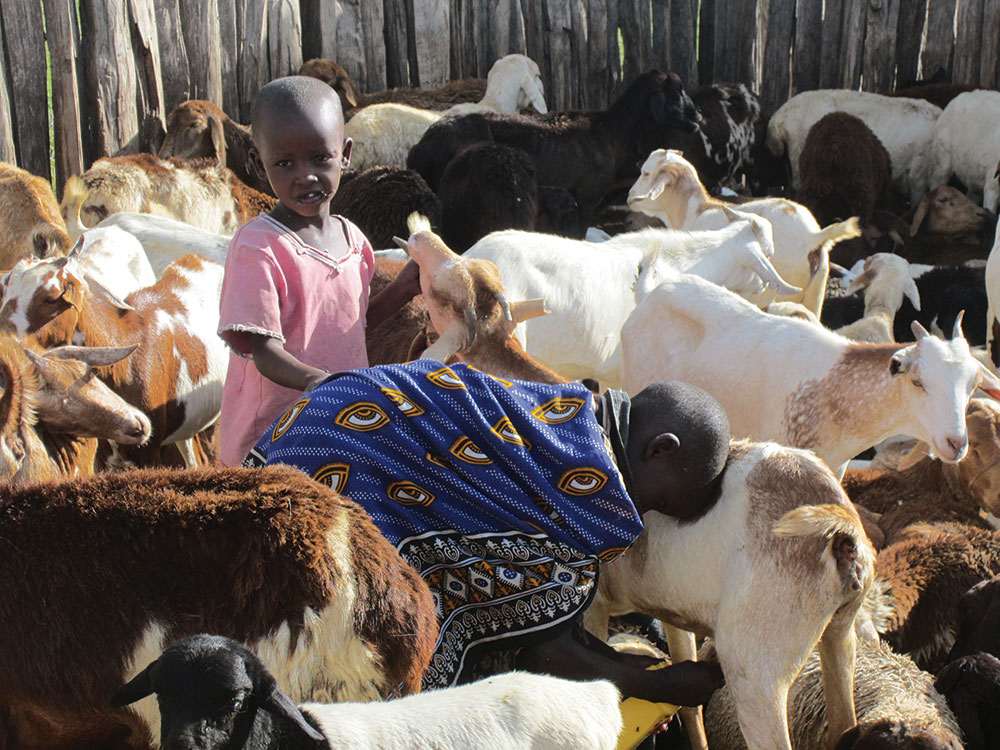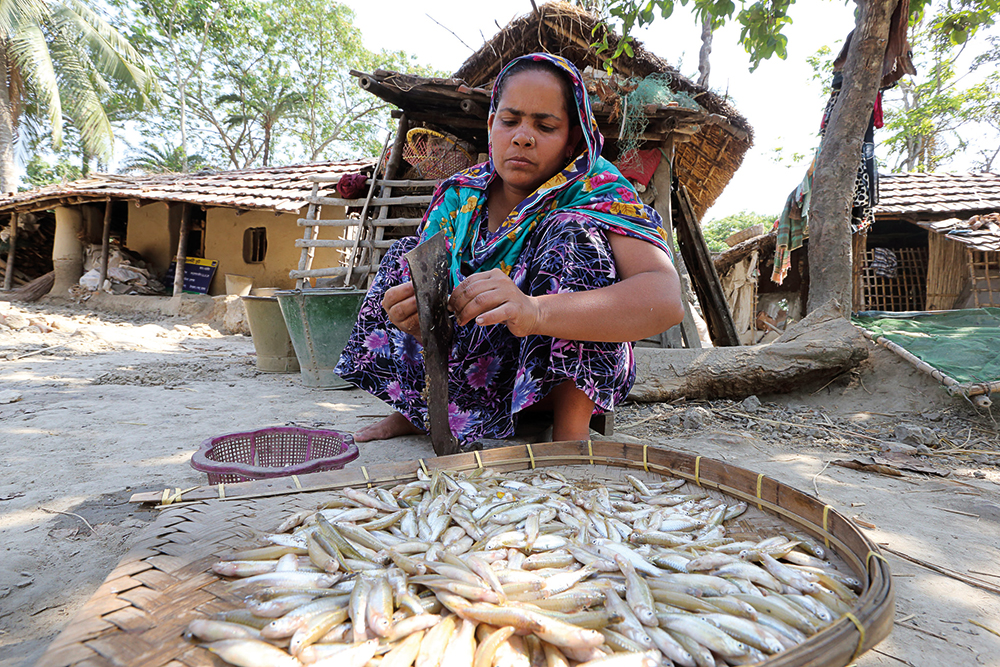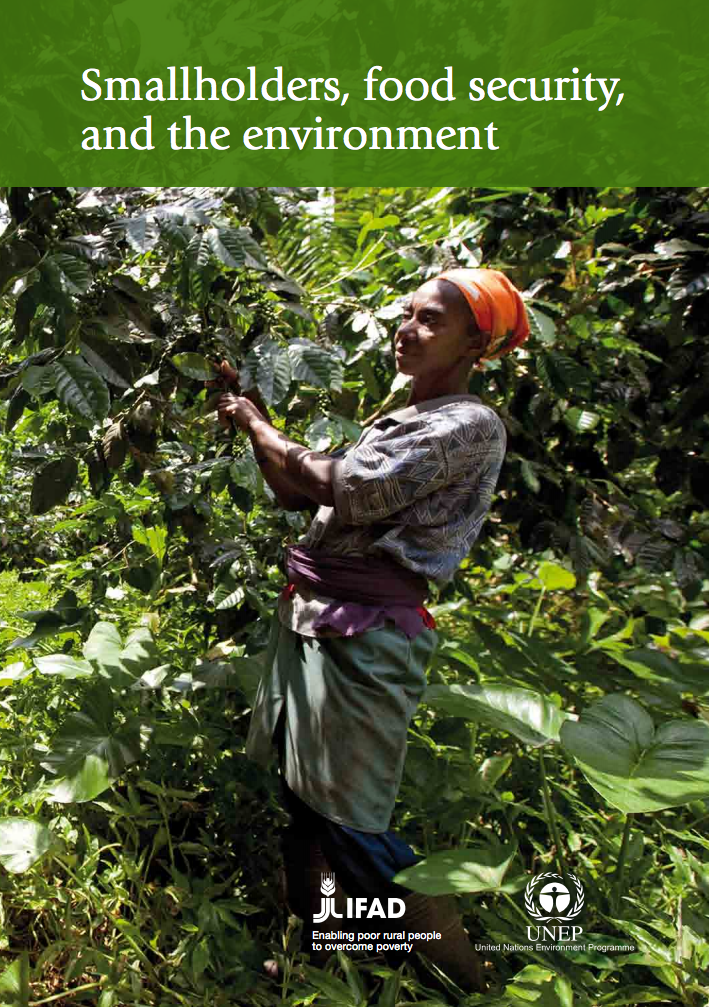Will African Agriculture Survive Climate Change?
Measurement of the likely magnitude of
the economic impact of climate change on African agriculture
has been a challenge. Using data from a survey of more than
9,000 farmers across 11 African countries, a cross-sectional
approach estimates how farm net revenues are affected by
climate change compared with current mean temperature.
Revenues fall with warming for dryland crops (temperature
elasticity of -1.9) and livestock (-5.4), whereas revenues
How Endowments, Accumulations, and Choice Determine the Geography of Agricultural Productivity in Ecuador
Spatial disparity in incomes and
productivity is apparent across and within countries. Most
studies of the determinants of such differences focus on
cross-country comparisons or location choice among firms.
Less studied are the large differences in agricultural
productivity within countries related to concentrations of
rural poverty. For policy, understanding the determinants of
this geography of agricultural productivity is important,
Reassessing Conditional Cash Transfer Programs
During the past decade, the use of
conditional cash transfer programs to increase investment in
human capital has generated considerable excitement in both
research and policy forums. This article surveys the
existing literature, which suggests that most conditional
cash transfer programs are used for essentially one of two
purposes: restoring efficiency when externalities exist or
improving equity by targeting resources to poor households.
How Research Can Assist Policy : The Case of Economic Reforms in Uganda
Research has had a powerful impact on
policy in Uganda, affecting the climate of opinion,
improving the quality of the policy debate, and helping
focus public policy and intervention on poverty reduction.
Uganda s successful use of knowledge and research to help
set public policy priorities demonstrates that even a poor
post conflict country can, in a relatively short period of
time, create an effective information base and feedback
Democratic Republic of Congo
T he Democratic Republic of Congo (DRC) committed to the mitigation of the effects of climate change by signing the Kyoto Protocol for climate change and other related environmental management protocols. Since 1994, DRC has produced two national climate change communication documents (RDC, Ministère de l’Environnement, Conservation de la Nature, Eaux, et Forêts 2001; RDC, Ministère de l’Environnement, Conservation de la Nature et Tourisme 2009).
Providing an enabling environment
The basic role for agricultural policies consists of providing the core investments and services that farmers need to develop their operations into viable farm businesses. Focusing on the sector’s enabling environment benefits both agriculture and the wider rural economy, facilitating the construction of diversified rural economies. Such policies are likely to be more effective in the long term than subsidies or market interventions, which have the opposite tendency.
Food security, agricultural policy and the role of small-scale farms
Increasing prices for agricultural commodities offer a historic opportunity to intensify production systems for small-scale farmers in many developing countries. But without agricultural policies supporting them in making use of this opportunity, many of them would lose their access to land and income, resulting in aggravated food insecurity.
The role of farmers’ organisations in defining national policies
Farmer organisations play a crucial role in the development of rural areas. But how influential are they when it comes to defining national policies? What can they achieve, and where are their limits? Our authors demonstrate this with regard to the small farmer organisations in South Africa.
How to increase farmer organisations’ effectiveness?
Farmer organisations that deal with policy and advocacy need a lot of specific skills. Exchange programmes with their counterparts in the North can help local farmer organisation in the Souht tap their potential.
Stakeholder participation. Easier said than done
Twenty-seven nations are classified as ‘water scarce’, a further 16 as ‘water stressed’. This situation, coupled with the fact that many surface and groundwater systems are shared between two or more states, has led governments to develop sustainable water management strategies. This implies a real commitment by all water users – households, farmers, and industrialists – to use available supplies in ways that reap sustainable and equitable benefits for all.
Smallholders, food security, and the environment
There are 1.4 billion poor people living on less than US$1.25 a day. One billion of them live in rural areas where agriculture is their main source of livelihood. The ‘green revolution’ in agriculture that swept large parts of the developing world during the 1960s and 1970s dramatically increased agricultural productivity and reduced poverty. Many of the productivity gains accrued to smallholder farmers, supported through research and extension services.









